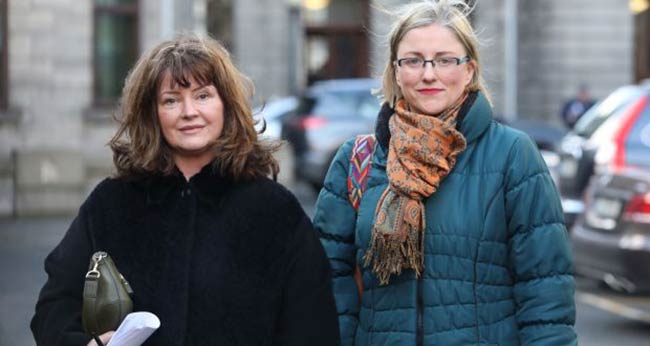Anti-abortion group wants to be heard in State’s appeal on rights of unborn
The Supreme Court will rule on Wednesday whether the Pro-Life Campaign can be heard in the State’s appeal of the extent of the constitutional rights of the unborn.
The anti-abortion group, which was established in 1992, has argued that its experience and expertise, including that of the law professor William Binchy, in protecting the rights of women and their unborn children would help the court to decide the legal issues before it.
The State has argued that, as the case concerns constitutional law, the Pro-Life Campaign cannot bring any expertise the lawyers already involved do not have. It was also concerned about a perception that an organisation that was campaigning for a particular outcome in the planned Eighth Amendment referendum was being given a role in the appeal, Mary O’Toole SC said.
The campaign group’s barrister, Benedict Ó Floinn, told the court on Tuesday that it was not seeking a platform for its viewpoint.
High Court findings
The appeal concerns the finding by the High Court judge Mr Justice Richard Humphreys, in July 2016, that the unborn has constitutional rights in addition to the right to life in article 40.3.3 of the Constitution and is a child according to the meaning of article 42a – which was inserted as a result of the 2012 children’s referendum – with constitutional rights the State is required to protect and vindicate. The State will argue that this is not the case.
The Pro-Life Campaign’s deputy chairwoman, Cora Sherlock, said in an affidavit on Tuesday that the group was concerned that the Government’s referendum proposals were designed to undercut future arguments that the unborn child had residual rights under other articles of the Constitution, and that the State would press for a decision that article 40.3.3 embodied the totality of the rights of the unborn.
If there was a chance that the Supreme Court would make a comprehensive determination of the rights of the unborn, other than those under article 40.3.3, every safeguard needed to be in place to ensure the unborn child’s position was “articulated thoroughly” before the court, Ms Sherlock said. She added that the respondents were being asked to shoulder responsibility for making arguments “on behalf of every unborn child, present and future, in Ireland”.
“Primarily political”
In an affidavit for the State, solicitor Ross Murphy said that giving a platform for the advancement of a particular view by a single-issue campaign group “must be viewed with caution”. The appeal was predominantly concerned with legal issues, he added, and the Pro-Life Campaign therefore did not meet the test to become an amicus curiae, or impartial adviser to the court on legal issues. He said that Ms Sherlock’s arguments were “primarily political” and of no relevance to the application.
Maurice Collins SC, one of a team of lawyers opposing the appeal on behalf of a Nigerian man, his Irish partner and their child, who was unborn when the case was initiated, said they were neutral about the Pro-Life Campaign’s application, as long as it did not interfere with the timing of the appeal, which is due to open on February 21st.
Wednesday’s ruling will be given by Mr Justice Donal O’Donnell, Mr Justice William McKechnie and Ms Justice Elizabeth Dunne.

